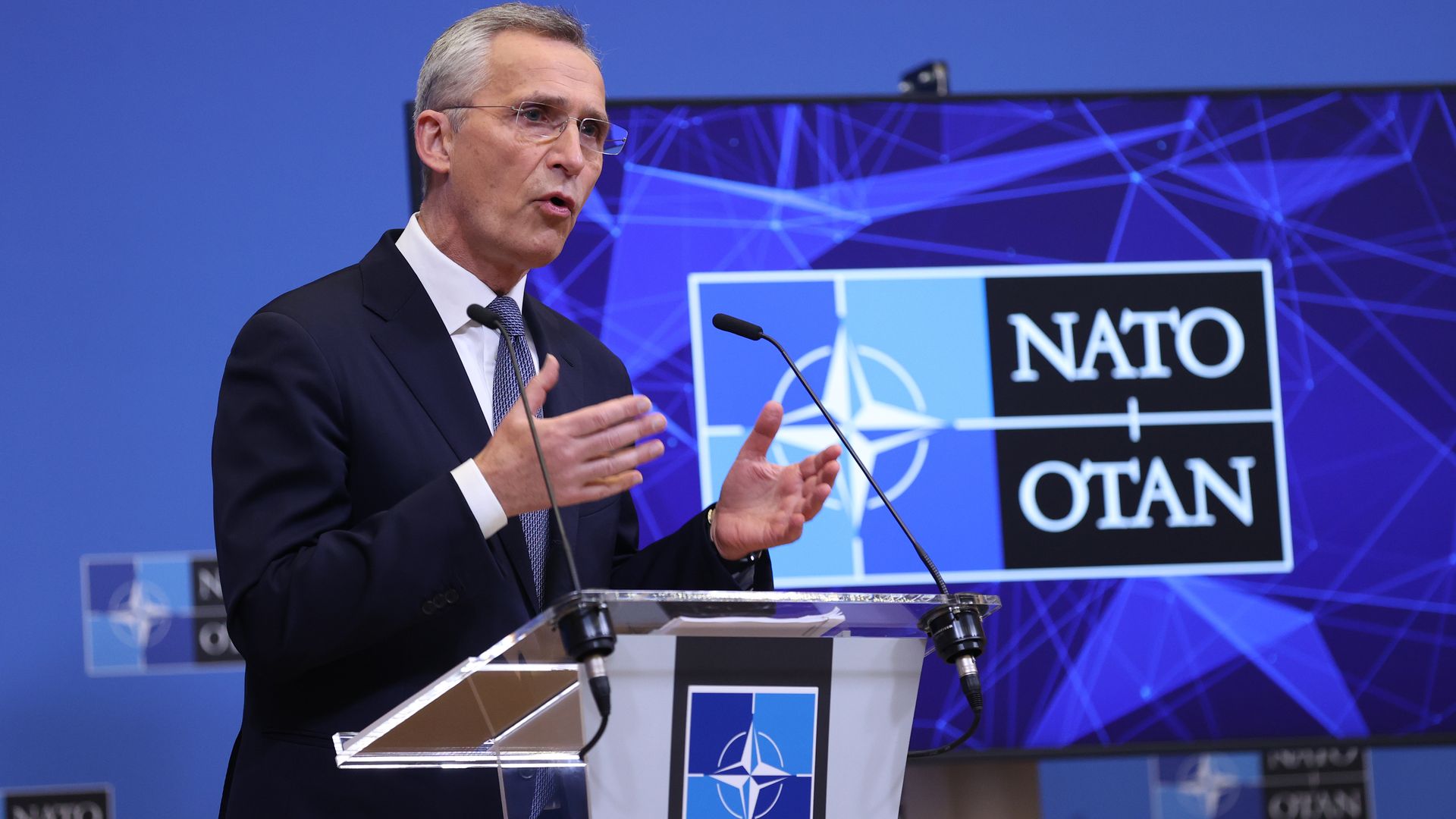NATO reveals how it will operate in outer space
Add Axios as your preferred source to
see more of our stories on Google.

NATO Secretary-General Jens Stoltenberg speaking during a press conference in Brussels on Jan. 12. Photo: Dursun Aydemir/Anadolu Agency via Getty Images
NATO will consider an attack against a member country's assets in space as an assault on the alliance, and such actions could lead to a coordinated armed response from all members if necessary, according to NATO's first formal, public space policy released Monday.
Why it matters: The policy reflects the increasing importance of space to more countries. It also normalizes NATO's intentions in space as China, Russia, India and other countries push forward on their science and military ambitions in orbit and beyond.
- It is being published roughly two months after Russia endangered the International Space Station and its crew by testing an anti-satellite weapon against one of its defunct satellites and amid heightened tensions between Moscow and NATO from the crisis over Ukraine.
Details: The policy expands on NATO's 2019 classified space policy and a communique released by the heads of member states last year, which said an attack against one member in space will be considered an attack against all.
- The new policy from NATO goes further and defines its key roles in space, including coordinating allies' space capabilities to help NATO's deterrence and defense efforts in other operational domains: land, maritime, air and cyberspace.
- It includes a list of principles and tenets the alliance seeks to uphold in accordance with international law, including that the use of outer space for peaceful purposes is in the common interest of all nations and that no country can claim space as its own.
- Of note: NATO said it is not aiming to become "an autonomous space actor" with its own capabilities but will rather rely on member countries that voluntarily provide "space data, products, services or effects that could be required for the Alliance’s operations, missions, and other activities."
What they're saying: NATO has yet to define what constitutes an attack, says Kaitlyn Johnson, a space policy expert at the Center for Strategic and International Studies.
- It's unclear how it would respond to forms of satellite warfare that temporarily disable or blind targets without permanently damaging them.
- "They're restating that there's a connection to Article 5 and Article 6, but reading that and interpreting it, we as the public don't know how serious this is, or where are these redlines," she said. "I think the alliance is intentionally being vague about this to leave its options open."
- Johnson added that NATO's commitment to rely on allies' space capabilities is notable, considering it was one of the first entities to deploy strategic satellites starting in the 1970s.
The big picture: Militaries around the world have already become reliant on space-based technologies, and increased competition in space may pressure more countries to pursue or improve their anti-satellite weapons in order to dominate their enemies or deter attacks on their satellites or private industries.
Go deeper: U.S. accuses Russia of preparing "false flag" operation to attack Ukraine
